Ahmed Al-Tahmeesschi
Enhancing Open RAN Digital Twin Through Power Consumption Measurement
Jul 01, 2025Abstract:The increasing demand for high-speed, ultra-reliable and low-latency communications in 5G and beyond networks has led to a significant increase in power consumption, particularly within the Radio Access Network (RAN). This growing energy demand raises operational and sustainability challenges for mobile network operators, requiring novel solutions to enhance energy efficiency while maintaining Quality of Service (QoS). 5G networks are evolving towards disaggregated, programmable, and intelligent architectures, with Open Radio Access Network (O-RAN) spearheaded by the O-RAN Alliance, enabling greater flexibility, interoperability, and cost-effectiveness. However, this disaggregated approach introduces new complexities, especially in terms of power consumption across different network components, including Open Radio Units (RUs), Open Distributed Units (DUs) and Open Central Units (CUs). Understanding the power efficiency of different O-RAN functional splits is crucial for optimising energy consumption and network sustainability. In this paper, we present a comprehensive measurement study of power consumption in RUs, DUs and CUs under varying network loads, specifically analysing the impact of Physical resource block (PRB) utilisation in Split 8 and Split 7.2b. The measurements were conducted on both software-defined radio (SDR)-based RUs and commercial indoor and outdoor RU, as well as their corresponding DU and CU. By evaluating real-world hardware deployments under different operational conditions, this study provides empirical insights into the power efficiency of various O-RAN configurations. The results highlight that power consumption does not scale significantly with network load, suggesting that a large portion of energy consumption remains constant regardless of traffic demand.
An Explainable AI Framework for Dynamic Resource Management in Vehicular Network Slicing
Jun 13, 2025Abstract:Effective resource management and network slicing are essential to meet the diverse service demands of vehicular networks, including Enhanced Mobile Broadband (eMBB) and Ultra-Reliable and Low-Latency Communications (URLLC). This paper introduces an Explainable Deep Reinforcement Learning (XRL) framework for dynamic network slicing and resource allocation in vehicular networks, built upon a near-real-time RAN intelligent controller. By integrating a feature-based approach that leverages Shapley values and an attention mechanism, we interpret and refine the decisions of our reinforcementlearning agents, addressing key reliability challenges in vehicular communication systems. Simulation results demonstrate that our approach provides clear, real-time insights into the resource allocation process and achieves higher interpretability precision than a pure attention mechanism. Furthermore, the Quality of Service (QoS) satisfaction for URLLC services increased from 78.0% to 80.13%, while that for eMBB services improved from 71.44% to 73.21%.
Large-Scale AI in Telecom: Charting the Roadmap for Innovation, Scalability, and Enhanced Digital Experiences
Mar 06, 2025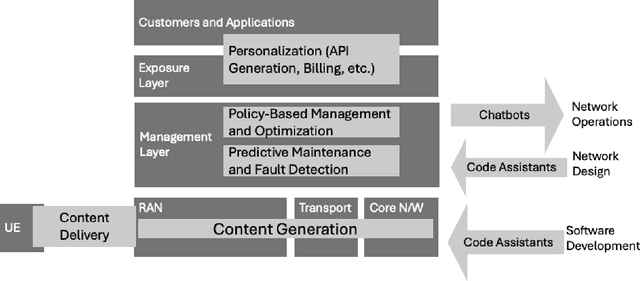
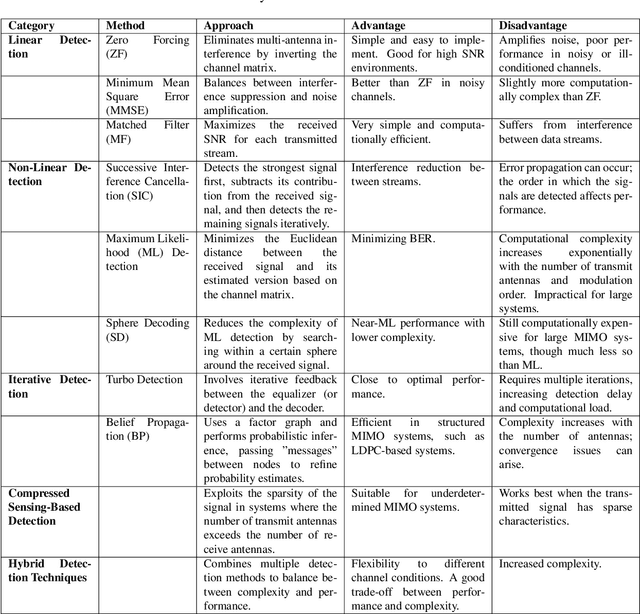
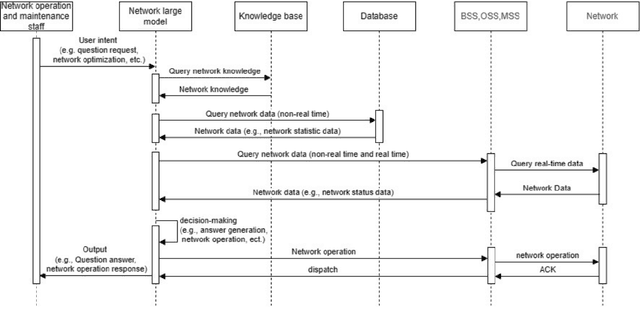
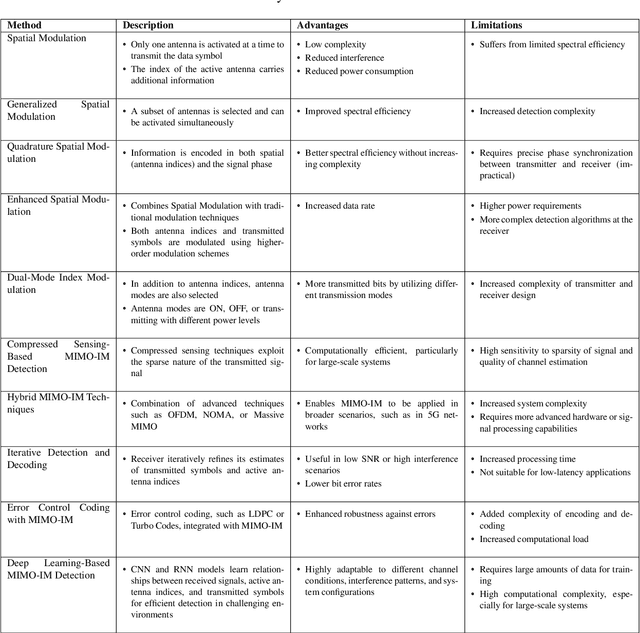
Abstract:This white paper discusses the role of large-scale AI in the telecommunications industry, with a specific focus on the potential of generative AI to revolutionize network functions and user experiences, especially in the context of 6G systems. It highlights the development and deployment of Large Telecom Models (LTMs), which are tailored AI models designed to address the complex challenges faced by modern telecom networks. The paper covers a wide range of topics, from the architecture and deployment strategies of LTMs to their applications in network management, resource allocation, and optimization. It also explores the regulatory, ethical, and standardization considerations for LTMs, offering insights into their future integration into telecom infrastructure. The goal is to provide a comprehensive roadmap for the adoption of LTMs to enhance scalability, performance, and user-centric innovation in telecom networks.
Optimized Resource Allocation for Cloud-Native 6G Networks: Zero-Touch ML Models in Microservices-based VNF Deployments
Oct 09, 2024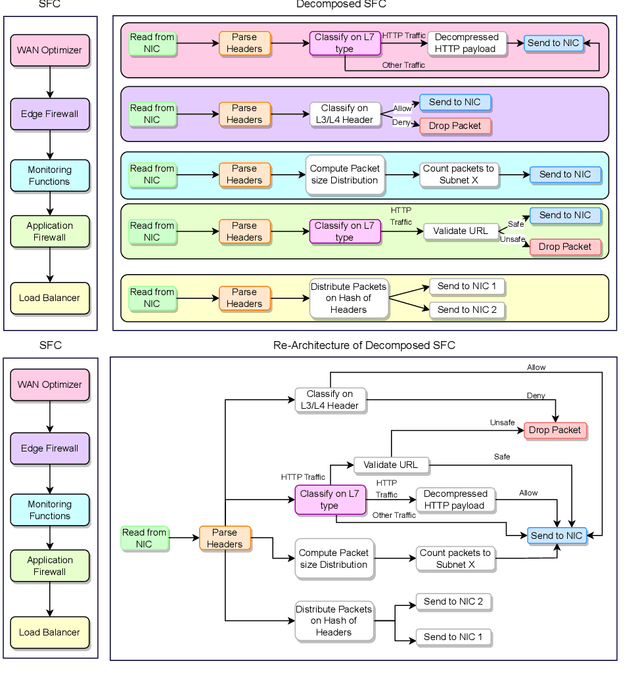
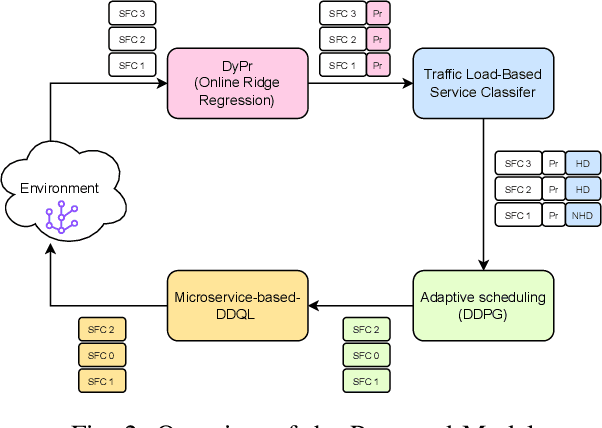
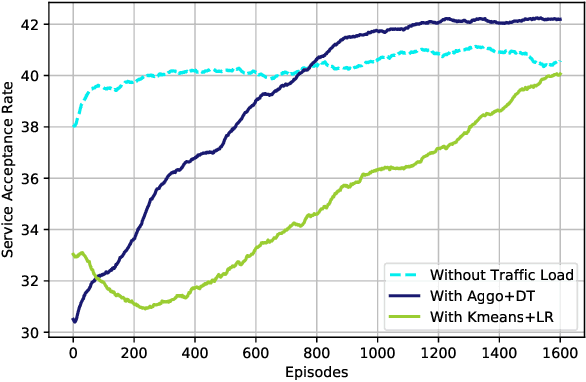
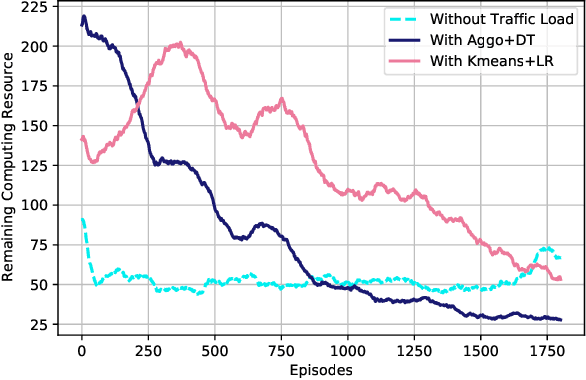
Abstract:6G, the next generation of mobile networks, is set to offer even higher data rates, ultra-reliability, and lower latency than 5G. New 6G services will increase the load and dynamism of the network. Network Function Virtualization (NFV) aids with this increased load and dynamism by eliminating hardware dependency. It aims to boost the flexibility and scalability of network deployment services by separating network functions from their specific proprietary forms so that they can run as virtual network functions (VNFs) on commodity hardware. It is essential to design an NFV orchestration and management framework to support these services. However, deploying bulky monolithic VNFs on the network is difficult, especially when underlying resources are scarce, resulting in ineffective resource management. To address this, microservices-based NFV approaches are proposed. In this approach, monolithic VNFs are decomposed into micro VNFs, increasing the likelihood of their successful placement and resulting in more efficient resource management. This article discusses the proposed framework for resource allocation for microservices-based services to provide end-to-end Quality of Service (QoS) using the Double Deep Q Learning (DDQL) approach. Furthermore, to enhance this resource allocation approach, we discussed and addressed two crucial sub-problems: the need for a dynamic priority technique and the presence of the low-priority starvation problem. Using the Deep Deterministic Policy Gradient (DDPG) model, an Adaptive Scheduling model is developed that effectively mitigates the starvation problem. Additionally, the impact of incorporating traffic load considerations into deployment and scheduling is thoroughly investigated.
Enhancing Energy Efficiency in O-RAN Through Intelligent xApps Deployment
May 16, 2024



Abstract:The proliferation of 5G technology presents an unprecedented challenge in managing the energy consumption of densely deployed network infrastructures, particularly Base Stations (BSs), which account for the majority of power usage in mobile networks. The O-RAN architecture, with its emphasis on open and intelligent design, offers a promising framework to address the Energy Efficiency (EE) demands of modern telecommunication systems. This paper introduces two xApps designed for the O-RAN architecture to optimize power savings without compromising the Quality of Service (QoS). Utilizing a commercial RAN Intelligent Controller (RIC) simulator, we demonstrate the effectiveness of our proposed xApps through extensive simulations that reflect real-world operational conditions. Our results show a significant reduction in power consumption, achieving up to 50% power savings with a minimal number of User Equipments (UEs), by intelligently managing the operational state of Radio Cards (RCs), particularly through switching between active and sleep modes based on network resource block usage conditions.
WHITE PAPER: Protecting GNSS Against Intentional Interference
Aug 24, 2022
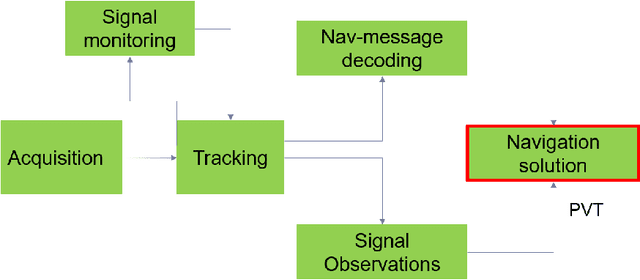
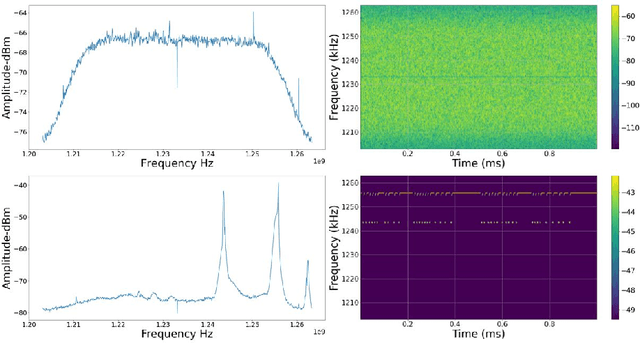

Abstract:The vulnerabilities associated with modern systems relying on Global Navigation Satellite Systems (GNSS) due to intentional and unintentional interference is an increasing threat. Since radio frequency interference (RFI) significantly degrades the performance of a GNSS receiver. Several traditional critical applications such as aviation, maritime and rail transport systems to more recent applications such as autonomous vehicles, can be severely affected by such undetected nor mitigated RFIs. Moreover, critical infrastructures such as power supply and money transfer, are becoming more and more dependent on the accurate timing information provided by GNSS. Thus, interference detection and management techniques are crucial to be utilised in order to reduce interference effects. This paper offers a state-of-the-art review of several proposed methods for interference detection and mitigation with solutions ranging from traditional to machine learning-based approaches. In addition, to be able to characterise the RFI threats and develop mitigation techniques, it is essential to monitor RFI systematically and share recorded data with interested entities. Therefore, three GNSS threat monitoring systems are briefly described. This White paper is a compilation of the seminar presentations given at a seminar on "Protecting GNSS against intentional interference" in March 2022 in Finland.
 Add to Chrome
Add to Chrome Add to Firefox
Add to Firefox Add to Edge
Add to Edge